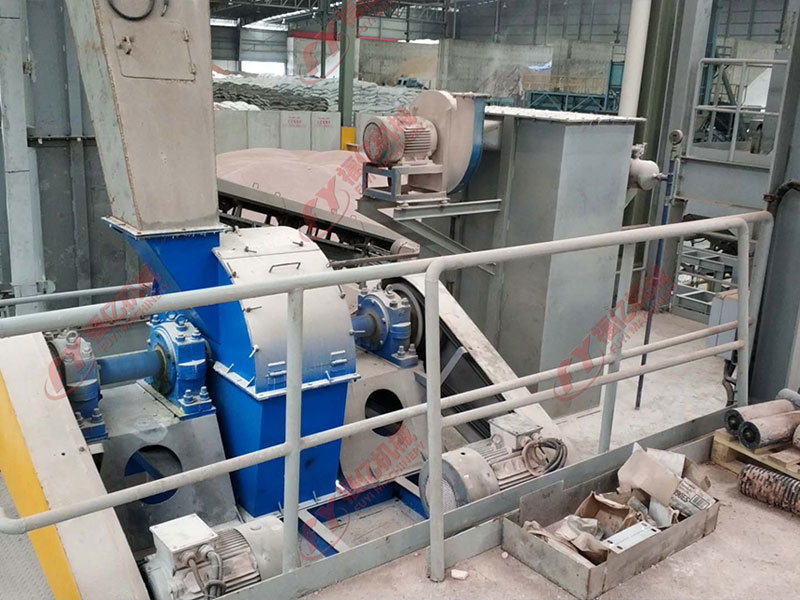
News & Events
Maximizing Efficiency in Agricultural Processing: Understanding DH Series Briquetting with Roller Presses
Release time: 2025-03-11
The DH series briquetting with roller presses is a state-of-the-art technology designed for the compaction of biomass materials, including agricultural residues, into solid briquettes. This process not only enhances the density of the raw materials but also improves their handling and storage properties. Unlike traditional methods of biomass processing, the roller press system operates on a principle of high pressure, which is crucial for transforming loose materials into compact briquettes.
One of the significant advantages of the DH series is its ability to handle a wide variety of biomass feedstocks, including straw, sawdust, and other agricultural by-products. The roller press applies intense pressure to the material as it passes through the rollers, creating a strong, durable briquette that can be used as a fuel source or for other applications. The process minimizes the moisture content of the biomass, making the briquettes ideal for long-term storage and transport.
Additionally, the DH series briquetting with roller presses is characterized by its energy efficiency. The compact design and optimized operational parameters ensure that energy consumption is kept to a minimum while maintaining output quality. This efficiency is crucial for agricultural operations seeking to reduce costs and enhance productivity in biomass management.
Another key aspect of the DH series is its versatility in terms of production capacity. Depending on the specific needs of the operation, these briquetting machines can be scaled to accommodate different volumes of feedstock. This flexibility allows agricultural businesses to adapt to varying demands and optimize their processing capabilities.
Furthermore, the briquettes produced from the DH series can be utilized in various applications. Aside from being used as a renewable energy source for heating and power generation, these briquettes can also serve as a raw material for other industries, including the production of biocomposites or as a soil amendment to improve soil health.
In conclusion, the DH series briquetting with roller presses represents a significant advancement in agricultural processing technology. By effectively transforming agricultural residues into high-quality briquettes, this innovative solution not only supports sustainability in farming practices but also enhances overall productivity. Understanding the operational dynamics and benefits of this technology can assist agricultural enterprises in making informed decisions about their biomass management strategies.
One of the significant advantages of the DH series is its ability to handle a wide variety of biomass feedstocks, including straw, sawdust, and other agricultural by-products. The roller press applies intense pressure to the material as it passes through the rollers, creating a strong, durable briquette that can be used as a fuel source or for other applications. The process minimizes the moisture content of the biomass, making the briquettes ideal for long-term storage and transport.
Additionally, the DH series briquetting with roller presses is characterized by its energy efficiency. The compact design and optimized operational parameters ensure that energy consumption is kept to a minimum while maintaining output quality. This efficiency is crucial for agricultural operations seeking to reduce costs and enhance productivity in biomass management.
Another key aspect of the DH series is its versatility in terms of production capacity. Depending on the specific needs of the operation, these briquetting machines can be scaled to accommodate different volumes of feedstock. This flexibility allows agricultural businesses to adapt to varying demands and optimize their processing capabilities.
Furthermore, the briquettes produced from the DH series can be utilized in various applications. Aside from being used as a renewable energy source for heating and power generation, these briquettes can also serve as a raw material for other industries, including the production of biocomposites or as a soil amendment to improve soil health.
In conclusion, the DH series briquetting with roller presses represents a significant advancement in agricultural processing technology. By effectively transforming agricultural residues into high-quality briquettes, this innovative solution not only supports sustainability in farming practices but also enhances overall productivity. Understanding the operational dynamics and benefits of this technology can assist agricultural enterprises in making informed decisions about their biomass management strategies.
Keywords: dh series briquetting with roller presses
 fy@fuyigz.com
fy@fuyigz.com
 0086-519-80181222
0086-519-80181222





















 fy@fuyigz.com
fy@fuyigz.com
 +61 426861120
+61 426861120
 Message
Message
